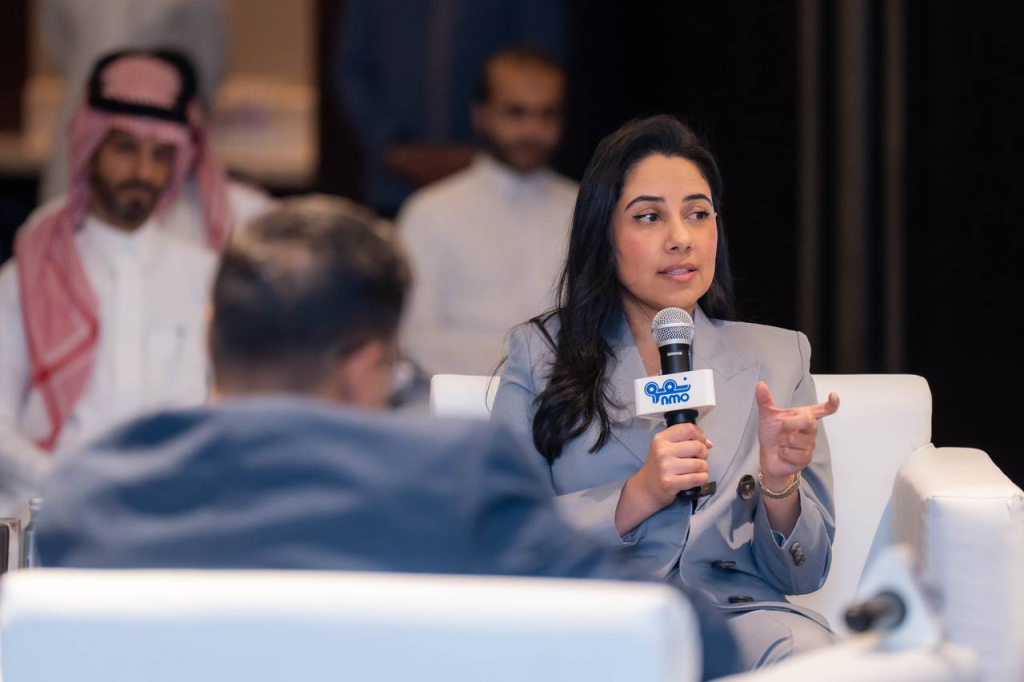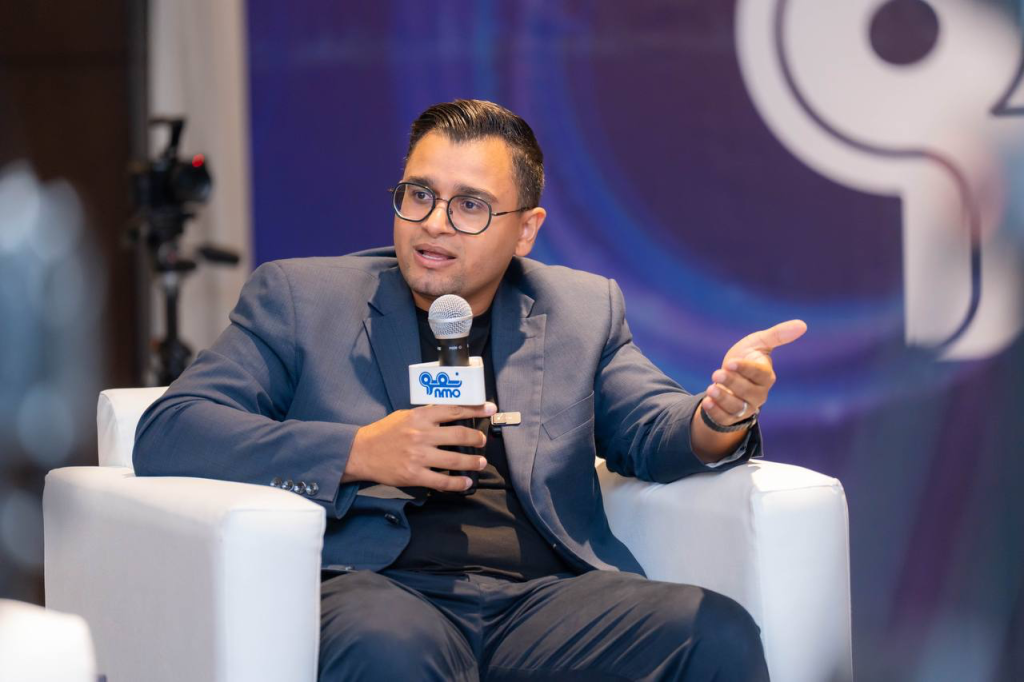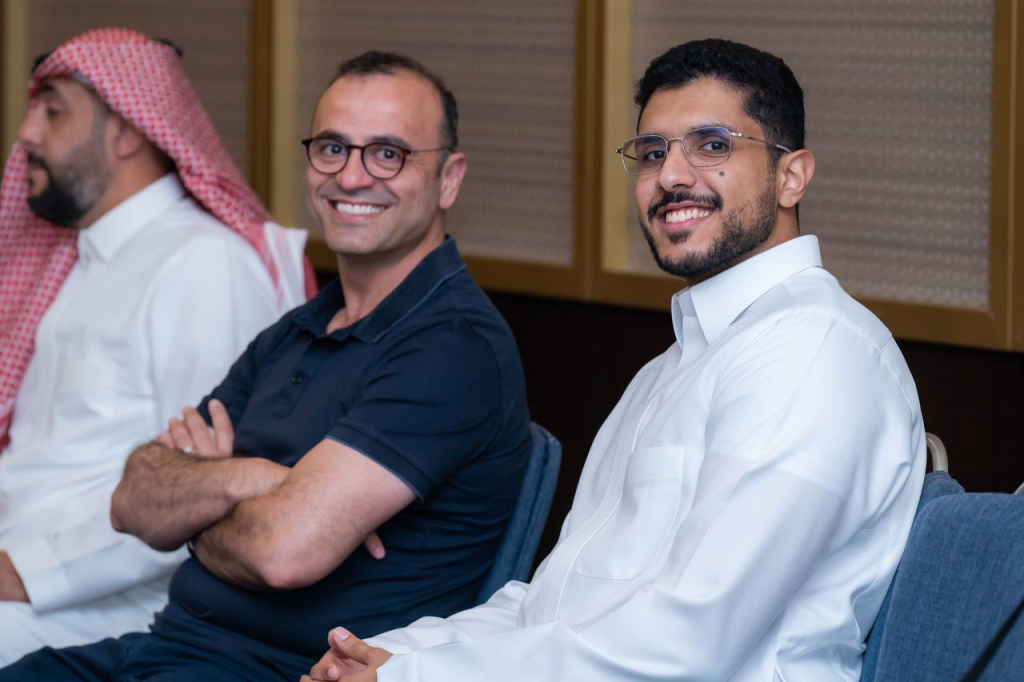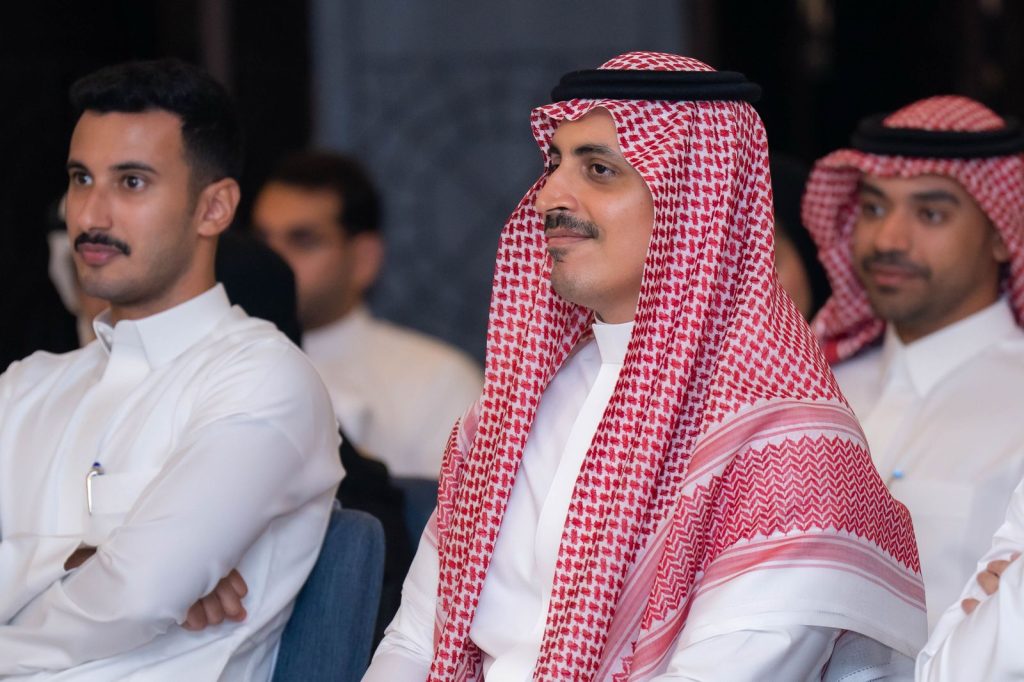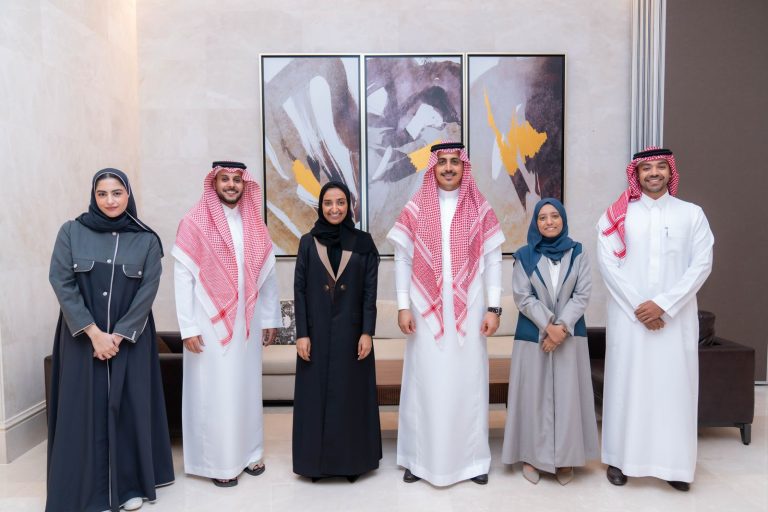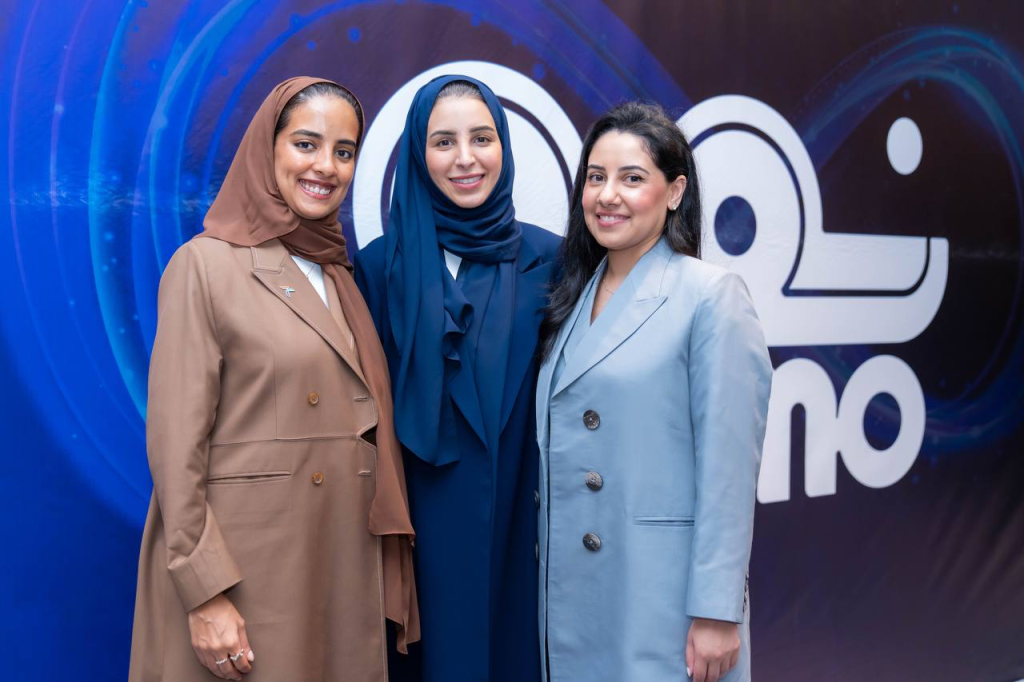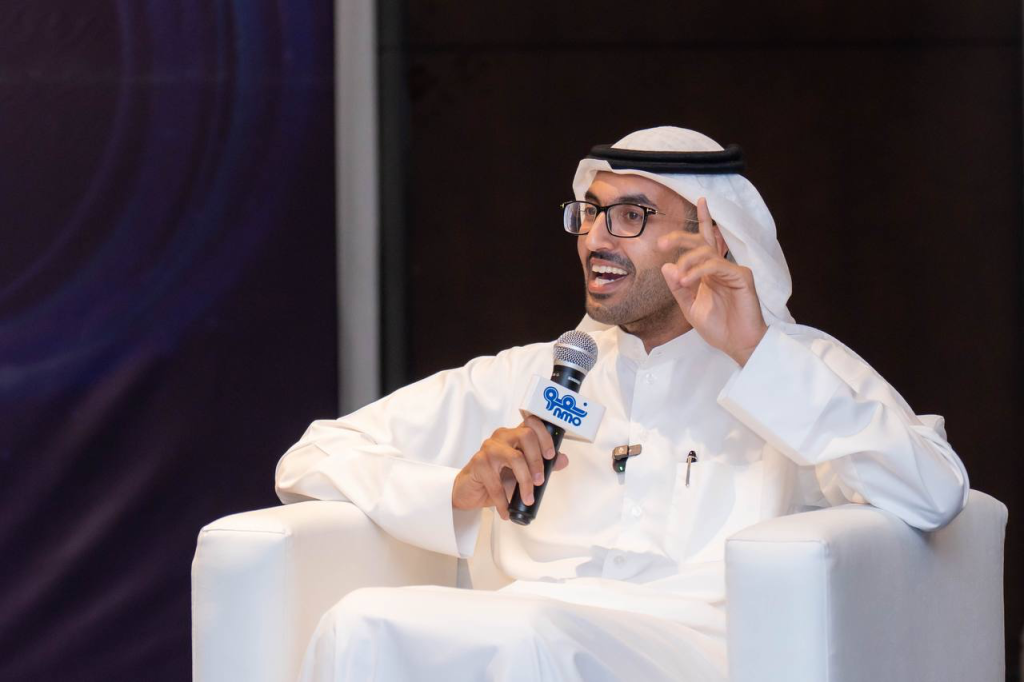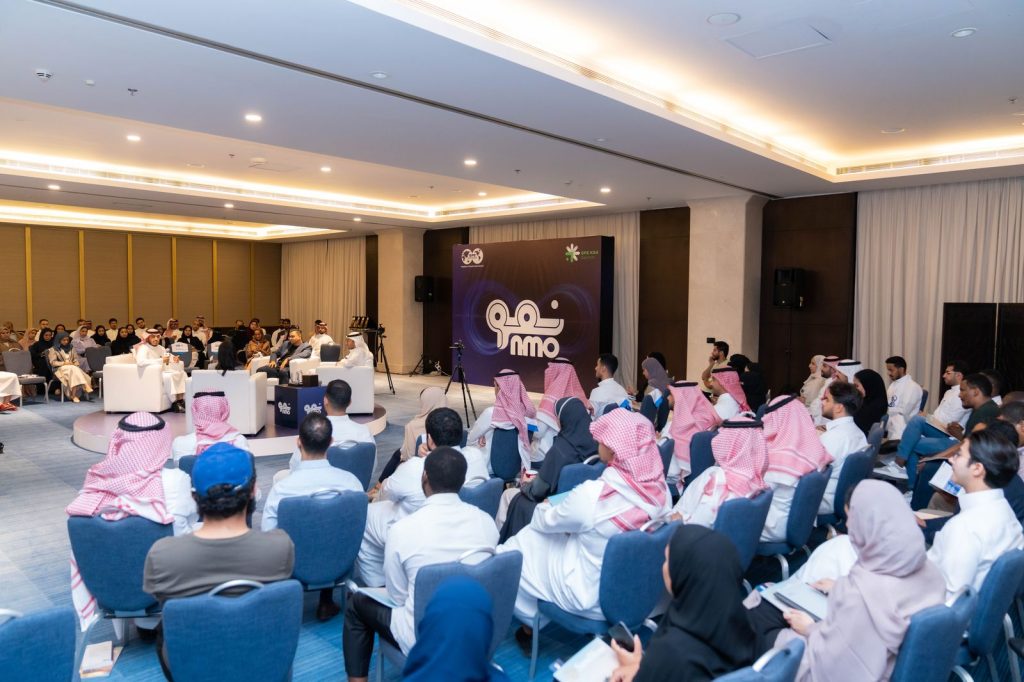By Safiyah Alghamdi
Career growth is a multifaceted journey, uniquely defined by individuals based on their distinctive aspirations and life stages. This was the key theme explored during the third NMO session titled “Career Growth,” where industry experts gathered to discuss the nuances of professional development. Organized by the NMO team as part of the Technical & Professional Programs and held on the evening of August 14th, the event welcomed 100 attendees to an engaging roundtable discussion moderated by Dr. Abdullah Almuhaideb, Petroleum Engineering Specialist at Saudi Aramco. The panel featured esteemed professionals from diverse backgrounds including Mai Aldossary, Corporate Communications Manager at TAQA, Mishari Alghamdi, Training and Development Manager at ASMO, and Mohammed Alabbad, Management Development Advisor at Saudi Aramco. The panelists engaged in a thought-provoking discussion, highlighting principal themes and points of consideration in the journey of career growth.
Defining Career Growth
The discussion opened with a complex yet fundamental question: What is career growth? Ms. Aldossary highlighted that the definition of career growth is often subjective. For some, it might mean earning a promotion, while for others, it could encompass any form of personal or professional development. Mr. Alghamdi echoed this sentiment, emphasizing that career growth is deeply personal and shaped by individual experiences and goals. Mr. Alabbad added that career growth is an ongoing process of self-improvement, evolving over time as one’s motivations and life circumstances change and develop.
Stages of Career Growth & Accompanying Challenges
Addressing the stages of career growth, Mr. Alghamdi pointed out that these stages are intrinsically linked to a person’s values at different phases of life. He referenced Reid Hoffman’s Tour of Duty concept from the book “The Alliance,”noting that early career stages often focus on excellence and skill acquisition, sometimes at the expense of work-life balance. As careers progress, the focus might shift towards leadership and creating impact, with new challenges and expectations emerging at each stage.
The panelists then delved into the challenges associated with career growth. Mr. Alabbad remarked that the difficulties often lie in meeting the evolving demands of each career stage. For instance, in more advanced roles, the challenge could be managing the responsibilities of leadership, which requires balancing team dynamics and organizational goals. Adding to that, Ms. Aldossary shared personal anecdotes from working in oil and gas fields, underscoring the importance of building a strong technical foundation early on in one’s career to ensure success in future roles.
Another challenge discussed was overcoming one’s self-imposed stereotypes and how others perceive them in the workplace. Ms. Aldossary discussed how personal traits, such as being an introvert or extrovert, can influence workplace perceptions. She also mentioned the pressure of maintaining a reputation of excellence, noting that career changes can provide a fresh perspective and alleviate this burden. Mr. Alabbad emphasized the importance of self-awareness in understanding how others perceive you, which is crucial for planning effective career transitions and achieving success.
Early Career Misjudgements & Role of Mentorship
One significant pitfall in the early stages of a career, according to Mr. Alghamdi, is the lack of understanding of the job’s nature and its alignment with personal goals. Many young professionals struggle with the transition from being high-performing students to junior employees, often finding the realities of work life starkly different from their expectations.
Mentorship emerged as a critical theme in this discussion. Mr. Alabbad eloquently stated, “A mentor downloads the genius in you while a coach uploads this genius.” He emphasized that while a mentor provides guidance, a coach helps individuals capitalize on their skills. Ms. Aldossary added that the most effective mentors are those who guide without micromanaging and have relevant experiences to their mentees. Mr. Alghamdi further elaborated on the importance of alignment between a mentor and a mentee’s goals, stressing that mentors should not impose their perspectives, but rather share their experiences to help mentees carve their own paths.
Navigating Career Transitions
Career transitions present their own set of challenges. Mr. Alghamdi identified three key difficulties: incomplete experiences, maintaining focus on current roles while planning transitions, and adapting to new work environments. Multiple career shifts in a short period can create a series of unfinished experiences that may not contribute to skill development and can be challenging to evaluate later. Ms. Aldossary added that while transitions can offer a more holistic view of one’s field, they often require significant personal adaptation to fit into a new corporate culture,demanding extensive efforts and social skills.
When it comes to selecting a workplace, the panelists agreed on the importance of the alignment between one’s personal goals and the organization’s values. Mr. Alghamdi highlighted the significance of choosing an organization that prioritizes employee development. He recommended tools such as the 360-degree feedback to understand both self-perception and how others view you, aiding in making more informed career decisions. Ms. Aldossary emphasized the importance of the work environment, noting that different workplaces offer varying levels of competition and stress, which must align with an individual’s preferences and expectations.
On a related note, the panelists shared insights on self-promotion and seizing opportunities. Mr. Alghamdi advocated for the power of networking, both in-person and online through platforms such as LinkedIn. Ms. Aldossary added that involvement in professional communities, such as SPE, can significantly enhance visibility and access to opportunities across various job roles.
Achieving Work-Life Balance
Achieving a work-life balance is critical for both career success and personal well-being. Ms. Aldossary emphasized the importance of time management, noting that balancing work and personal life is crucial for long-term productivity and satisfaction. She advised professionals to take regular breaks and not to postpone vacations, as these periods of rest are essential for recharging and maintaining high performance. Mr. Alghamdi pointed out that work-life balance can vary depending on the stage of one’s career and life. For example, early in a career, professionals may prioritize skill acquisition and career advancement, often leading to longer hours and more intense work periods. As careers progress, however, the focus might shift towards achieving a balance that allows for more personal time, family commitments, or pursuing hobbies. Mr. Alabbad highlighted the role of hobbies and personal interests in achieving work-life balance, noting that they can provide a mental break, help prevent burnout and promote a more fulfilling life.
This NMO roundtable offered a wealth of insights into the complex journey of career growth, providing valuable guidance for professionals at every stage of their careers. The discussion not only highlighted the challenges and opportunities professionals encounter at various stages of their careers, but also provided actionable guidance for navigating these complexities, empowering individuals to take informed steps toward achieving their professional aspirations.
